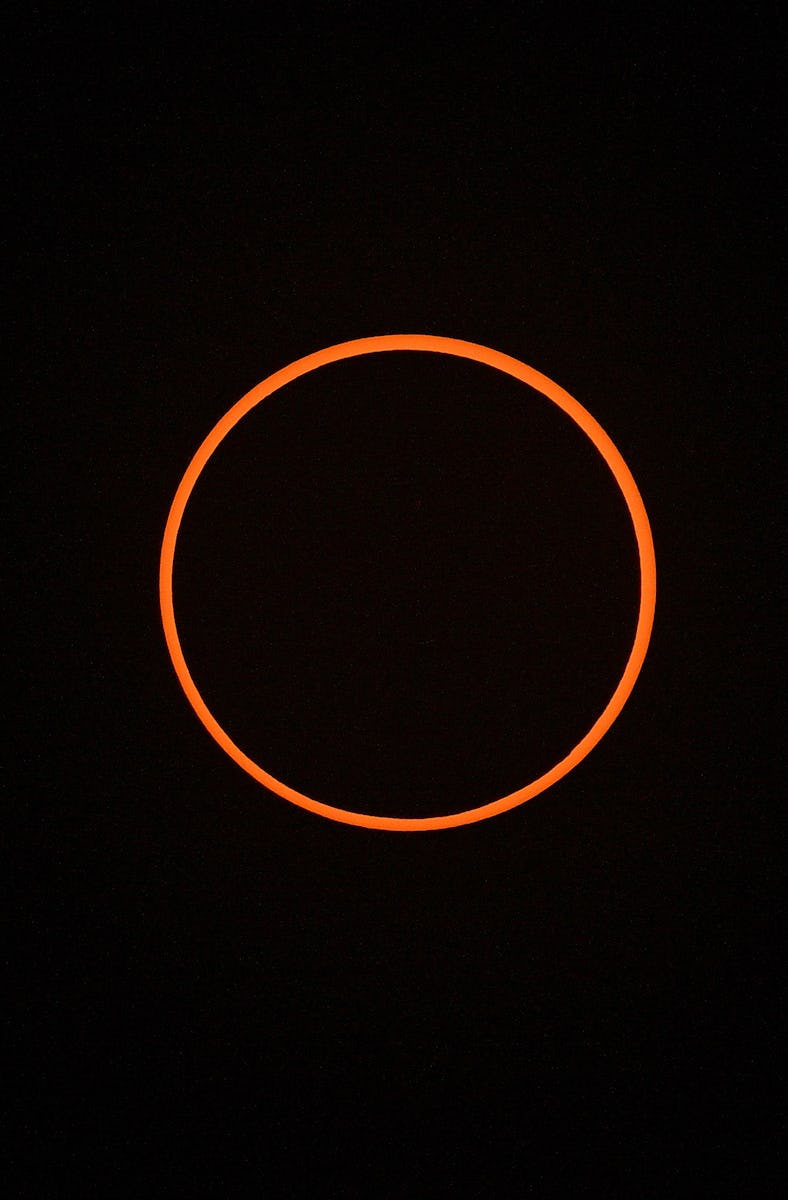9 US Cities That Could Have Great Weather for the 2024 Total Solar Eclipse
In the United States, the 2024 total solar eclipse will first become visible in Texas and will be last seen in Maine.

The 2024 total solar eclipse is just months away. On the afternoon of April 8, the invisible New Moon will cross in front of the Sun, completely blocking it from our view and leaving visible just the halo of the star’s corona. In doing so, the Moon will cast a shadow that stretches anywhere from 108 to 122 miles wide. This shadow will slice through North America from the southwest to the northeast.
In the United States, the total solar eclipse will first become visible in Texas and will be last seen in Maine. With such a vast geographical range, deciding where to see it can be tricky. To help narrow down your search, Inverse used historical observational data on weather and cloud coverage from two meteorological services, Visual Crossing, and Time and Date, with a narrow focus on April 7 through April 9 from the years 2019 through 2023. With it, we identified the nine best places to see the eclipse, focusing on the afternoon hours from 12 p.m. to 6 p.m., that are most likely to present a clear sky on game day.
NASA’s Science Visualization Studio and the agency’s heliophysics scientists collaborated to create this map of the 2024 total solar eclipse’s likely route across the United States.
9. Indianapolis, Indiana
Indianapolis, unfortunately, showed no sunny afternoons. But also had some partly sunny weather. Eclipse totality in Indianapolis starts at 3:06 p.m. EDT, according to Time and Date.
But there’s some good news: The 2024 total solar eclipse will be a long one. In the case of Indianapolis, the totality portion of the eclipse will last more than three minutes. This gives clouds extra time to scamper if they happen to block the Sun during the precious moments of totality.
“Seven years ago, the longest period of totality was experienced near Carbondale, Illinois, at 2 minutes, 42 seconds,” NASA officials wrote in an update published Tuesday.
“As the eclipse enters Texas [this year], totality will last about 4 minutes, 26 seconds at the center of the eclipse’s path.”
8. Buffalo, New York
Buffalo may be a popular locale, with Niagara Falls nearby, but only one of the 15 afternoons was sunny. The area did show a lot of partly sunny weather, so there’s still a chance for decent eclipse viewing. Totality, when the Moon finally blocks out the entire solar disk, starts in Buffalo at 3:18 p.m. EDT.
A child uses a sun viewer to view an eclipse in Houston. Never look at the Sun with anything except certified solar-gazing glasses!
7/6. Burlington, Vermont and Little Rock, Arkansas
These two cities were just about neck and neck weather-wise. Both places only had two out of 15 sunny afternoons and one or two clear days based on data from Visual Crossing. The silver lining is they also showed a mix of broken and passing clouds.
Burlington’s totality begins at 3:26 p.m. EDT. Eclipse totality in Little Rock starts at 1:51 p.m. CDT.
5. Dallas, Texas
Dallas had only two sunny afternoons, but the data shows many of its clouds passed quickly. Eclipse totality in Dallas starts at 1:40 p.m. CDT.
4. Cleveland, Ohio
The next-best spot for weather, historically, has been Cleveland, Ohio. One-fifth of its afternoons from April 7 to April 9 were sunny, and Visual Crossing called one-third of them clear days. Cleveland first experiences totality at 3:13 p.m. EDT.
The Flores family watches a solar eclipse together on October 14, 2023 in Kerrville, Texas.
3. Evansville, Indiana
The weather in Evansville historically has included passing clouds on these days. If this weather repeats itself, clouds may roll out frequently enough for viewers to see something spectacular. Eclipse totality will start here at 2:02 p.m. CDT.
2. Houlton, Maine
The next-best spot was the town of Houlton, Maine, with half the afternoons showing sunny conditions. Totality begins in Houlton at 3:32 p.m. EDT.
When Houlton had clouds in their afternoon skies, they tended to be passing.
1. Austin, Texas
Historically, the place with the best weather on these days has been Austin, Texas. Two-thirds of the afternoons between April 7 and April 9 offered “sunny” conditions, according to Time and Date. Totality in Austin starts at 1:36 p.m. CDT.
This article was originally published on